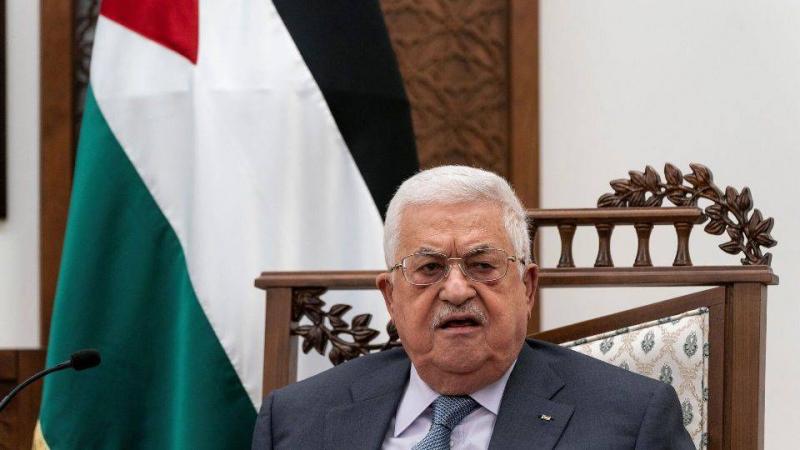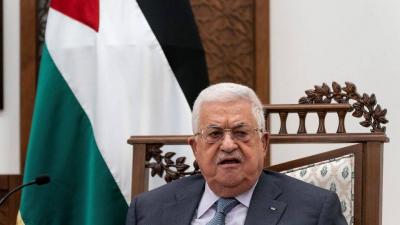Mahmoud al-Habbash, advisor to Palestinian President Mahmoud Abbas, described the meetings between Hamas and Fatah as "not serious and not fruitful." In a special interview with the Arab World News Agency (AWP), he stated, "There are meetings and discussions between Fatah and Hamas; my conviction is that they are not serious or productive," in response to a question about the possibility of Hamas joining the Palestine Liberation Organization (PLO).
He continued, "We do not close doors... but there are no indicators from Hamas nor serious proposals. Hamas holds dialogue meetings only to throw dust in the eyes, and for the sake of the meetings; Hamas does not want reconciliation or an end to the division."
Al-Habbash accused Hamas of adopting a "hegemony-seeking" approach, saying it is "working to build its own entity in the Gaza Strip, even if this harms the Palestinian cause - and it does harm it - even if it is with the approval of Israel."
He added, "For 17 years, this negative stance has prevented unity in the Palestinian position, leading us into all these mazes we have entered, bringing six wars that destroyed Gaza six times and giving Israel an excuse to evade political obligations; this is Hamas's behavior."
**A Closed Circle**
Regarding whether Palestinians will continue in this closed circle of division, al-Habbash said, "Hamas wants to enter the PLO to dominate it and seize the Palestinian national decision."
He further stated, "Let us remember that dialogues of the organization with Hamas began before the establishment of the Palestinian Authority in 1988 in Yemen and Algeria, and whenever we reach a point, Hamas avoids commitment."
He continued, "After the coup, Hamas also evaded the commitments of reconciliation. Where are the Cairo, Doha, or beach agreements?"
When asked if there is consideration of using force by the Palestinian leadership in Ramallah to control Gaza, al-Habbash responded, "It is not in our culture to spill Palestinian blood, unlike Hamas."
He added, "We will continue to try and exert all efforts and use all possible means that do not lead to spilling Palestinian blood; our primary reliance is on our Palestinian people."
Concerning the possibility of the Palestinian Authority relying on Arab forces to control Gaza, al-Habbash stated that this "is premature talk and can be discussed after ending the aggression."
**Abbas Angered by the U.S.**
On another note, al-Habbash indicated that President Mahmoud Abbas feels deep anger towards the United States and frustration over what he described as obstacles to any progress regarding the recognition of the Palestinian state, the latest being the U.S. veto against the resolution to recognize the State of Palestine.
Al-Habbash refused to explicitly confirm Abbas's rejection of a meeting with U.S. Secretary of State Antony Blinken, stating that "it was not in the president's schedule to see Blinken; even if a meeting was proposed, he did not have sufficient time for it."
He stated, "The president did not plan to meet Blinken, did not request to meet him, and did not consider the matter," denying knowledge of whether the U.S. Secretary of State had requested to meet President Abbas in Riyadh or Ramallah.
He continued, "Blinken has come six times and has not offered anything new. Do we want a meeting just for the sake of meeting?"
Al-Habbash also considered the U.S. to be placing what he called "obstacles in the wheels of the Arab paper presented by the Arab six-group," which is based on ending the occupation and reaching a Palestinian state within a set timeframe.
He noted what he described as Arab consensus around this vision, saying, "We and our Arab brothers see this paper as a reference for achieving any progress on the proposed files."
**The Day After the War**
Regarding the next day in Gaza, al-Habbash stated, "The day after is linked to a political solution, including the West Bank, Gaza, and Jerusalem."
He added, "Now, the focus is only on the current day, concentrating efforts on stopping the aggression against our people and thwarting the plan of displacement and stabilizing people on their land."
Al-Habbash accused Israeli Prime Minister Benjamin Netanyahu of not wanting a Palestinian state and preferring to separate Gaza from the West Bank, stating, "Netanyahu prefers Hamas to remain weak and under Israel’s wing... rather than the Authority returning to Gaza to unite the West Bank and Gaza."
He continued, "For 17 years, Netanyahu has worked on this matter, supported the presence of Hamas, and helped its existence, and this was public; now, everyone talks about it, even some parties that funded Hamas have said that the funding was at the behest of Israel and the United States."
He added, "We see no other picture for the day after except a Palestinian state according to international legitimacy under the auspices of the Palestine Liberation Organization, and no other ideas can be entertained."




